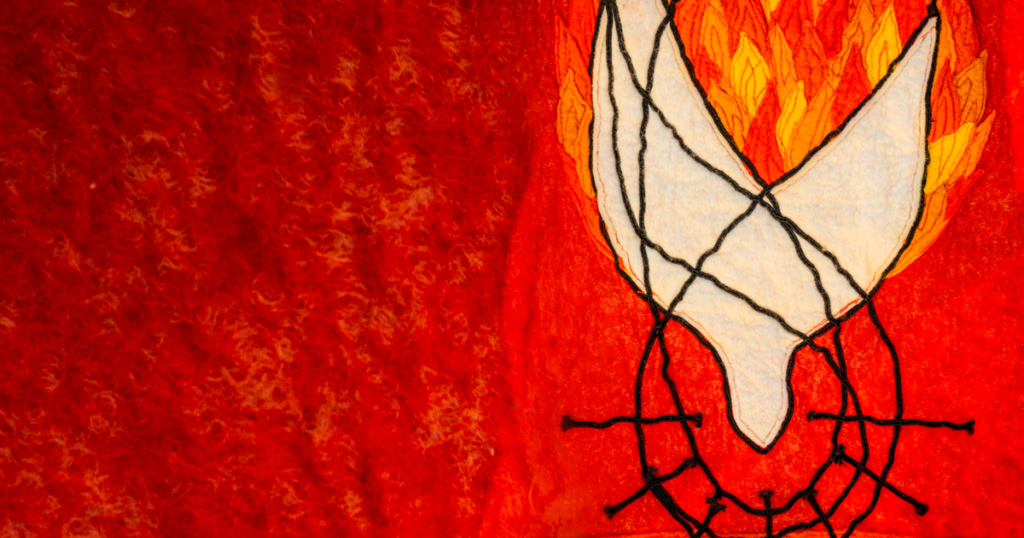by David H. Petersen
The miracle at Pentecost includes the Holy Spirit causing the Apostles to speak in unlearned languages and causing people from all over the known world to believe and be baptized. This miracle did not reverse the curse of Babel by restoring a single language to humanity, as we might have expected. Rather, the Holy Spirit made what was a curse, a cause for division and confusion, into a blessing. By this act, all human languages were endorsed by God as fit to carry His Word and sing His praise.
We see something of this blessing of diversity in unity in St. John’s vision. John tells that he saw “a great multitude that no one could number, from every nation, from all tribes and peoples and languages, standing before the throne and before the Lamb, clothed in white robes, with palm branches in their hands, and crying out with a loud voice, ‘Salvation belongs to our God who sits on the throne, and to the Lamb!’” (Rev. 7:9-10).
John saw and heard a marvelous thing. Not only were all these people adorned with similar white robes and carrying palm branches, but they represented every nation, all tribes and people. The saints in heaven aren’t Stepford wives or clones that are interchangeable. They are, and remain, visibly unique individuals.
So also, John heard them crying out in a loud voice. He heard them crying out together: “Salvation belongs to our God who sits on the throne, and the to the Lamb.” It might be possible that they all cried this out in Hebrew or some other single language, but John has already described this great multitude as including “all … languages.” It seems most likely to me that he knows this because he heard these languages with his own ears. In other words, the saints perfected are audibly unique even as they are visibly unique.
If I am reading this right, it means that the saints perfected, the saints in heaven, keep their mother tongues. Filled with the Spirit and at one with the Father in the Son, their languages work together, in harmony, without confusion or discord, without stepping on or drowning out one another. They remain unique, according to their lives on earth, with their own histories and memories, and yet, fully sanctified, they are united to Christ and to one another. John hears them sing a single song of praise without competition or envy, without fear or insecurities.
The coming of the Holy Spirit on the day of Pentecost is the culmination of Easter. It is the beginning of the new age. The Church Militant has lived ever since in the last days. Pentecost shows something of heaven and matches John’s vision. Christian worship and evangelism around the world in vernacular tongues also matches and continues to bear witness to the Pentecost miracle.
The Rev. David H. Petersen is the pastor of Redeemer Lutheran Church in Ft. Wayne, Ind.





Thank you. I have always wondered about our identity in Heaven — would we maintain our individuality with our history and memories — or would we be wiped clean without any connection to our former life on earth.
Thank you,for that great article. That was very encouraging.